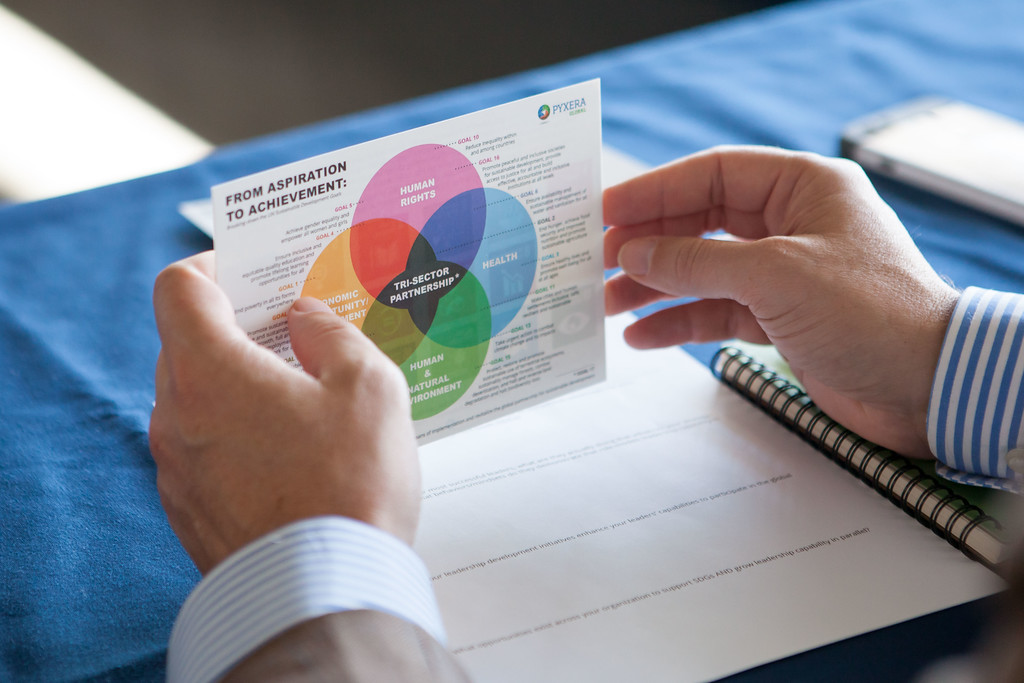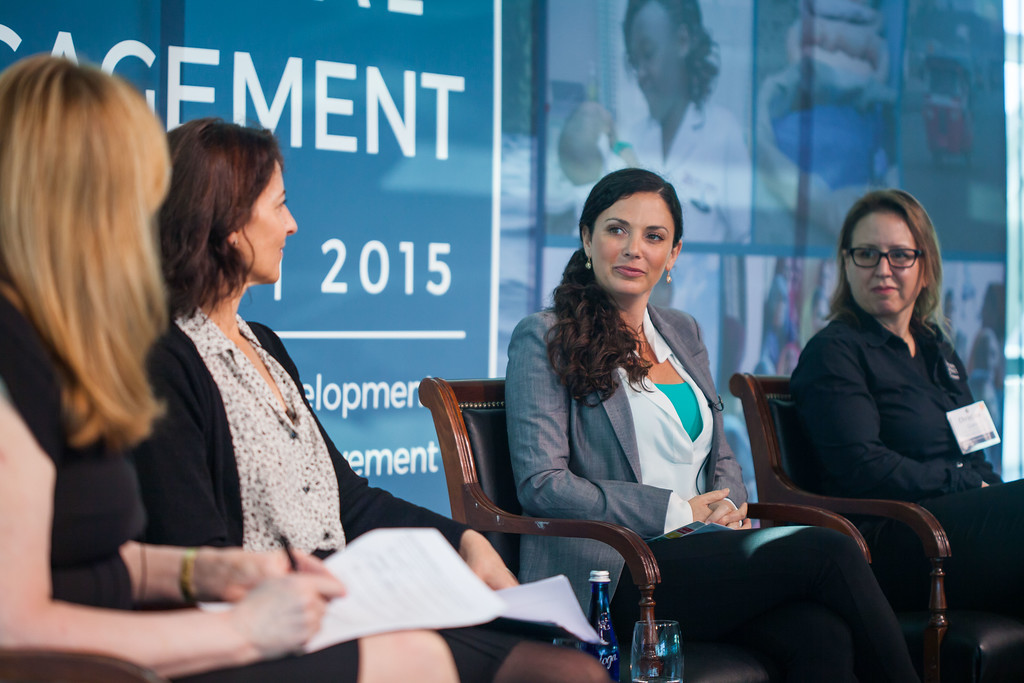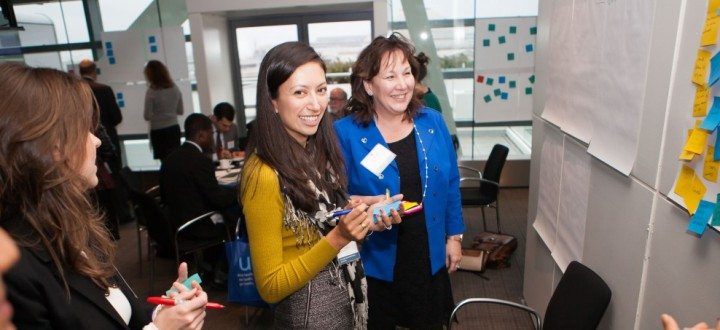At first glance on the morning of November 10th, the Newseum in Washington, D.C. was filled with an unlikely cast of characters. What could possibly bring together corporate executives from Fortune 500 companies, community leaders from Detroit to South Africa, and US government and military officials into the same room, much less to the same table? Not so long ago this combination would have indicated a negotiation of some kind—at best- but the 2015 Global Engagement Forum hosted by PYXERA Global was a manifestation of something profoundly different: the passionate and sincere commitment of everyone involved to tackle the world’s most pressing problems and a shared awareness of the imperative to work together to do so.
Convened under a vision focused on “Moving the Sustainable Development Goals from Aspiration to Achievement,” the three-day event challenged participants to consciously and strategically move out of the silos of their own sectors, beyond mere consultation, into a dynamic space of meaningful multi-sectoral collaboration. Examples of successful initiatives provided inspiration on how innovative partnerships can make real progress towards the Global Goals, ratified by the United Nations in September, from Fundacion Avina’s WASH program that has built the capacity of literally tens of thousands of community water groups to provide clean water in rural villages throughout Latin America (Goal #6) to the work of the John Deere Foundation and PYXERA Global partnering with local organizations (JIVA) that is catalyzing systemic change in rural Rajasthan, India (Goals #2&4). Personal stories revealed how corporate employees were transformed into leaders and agents of change through pro bono assignments with community-based organizations both domestically and abroad. These examples, among many others from around the world, provided tangible proof of the power of meaningful cross-sector alliances to address the ambitious agenda set forth by the UN.

While the “win-win-win” merits of the public, private and social sectors working together were highlighted and celebrated throughout the conference, there was also an honest recognition of the struggles in forming these relationships, the hidden power dynamics involved, and the challenges inherent in bringing diverse and sometimes conflicting voices and interests to the table to solve complex problems. In a provocative session on the first morning of the Forum, Richard Crespin of CollaborateUp! dared the participants to voice their fears about partnerships. As people courageously spoke up, it was clear that a lack of trust was at the root of most failed efforts. Richard urged us to have the courage to embrace vulnerability, practice a great deal of patience, and reimagine how we engage in problem solving with others. Dr. Vic S. Ramdass, Director of Partnering at the US Southern Command, encouraged leaders to “Set up the tent” to bring potential partners together and identify not only shared values but also conflicts of interest from the start. During a dynamic roundtable discussion on partnership, participants from a wide range of perspectives spoke to the importance of keeping it real in negotiations, being very clear about defining roles, expectations, and decision-rights, and practicing routine check-ins in order to course-correct along the way. These words of wisdom and best practices can help shift relationships from mere ‘photo ops’ to a transformational experience.
Deirdre White, CEO of PYXERA Global, acknowledged that some attendees “Had overturned a lifetime of ‘good guys’ and ‘bad guys’ mentality,” to courageously engage with other sectors at the Forum. I counted myself amongst that group. As a former director of a community-based organization that had been burned by a failed corporate partnership under my watch, I had personal experience with transactional relationships that did more harm than good. I’ve been cautious ever since. However, after listening, learning, and engaging in meaningful dialogue with passionate and thoughtful leaders from every sector at the Global Engagement Forum, I’m less guarded and more optimistic about the potential of cross-sector partnerships to move us toward action, and ultimately accomplishment of the Global Goals. The scale of the global challenges we face can be overwhelming, but by working together, positive change is possible- in our cities, countries, and world. The first step is admitting that we can’t do it alone, to be vulnerable enough to ask for help, and to take the time to find partners who also care about the problem we seek to address. Leaders of any sector can kickstart this process by hosting an open roundtable on a pressing issue and inviting others to contribute their unique perspective and ideas. This approach can attract surprising partners and can lead to truly creative and innovative solutions. By having the courage to break out of our silos, join forces with unlikely allies, and cultivate purposeful and mindful partnerships, we begin to change the world one person, one organization, one partnership at a time.
Susan Lightfoot Schempf
Susan Lightfoot Schempf is a graduate student in International Development at the Payson Program for Global Development at Tulane University Law School and served as the Local Consultant for PYXERA Global’s project with Wal-Mart BRIDGe Corps in New Orleans this past fall.





